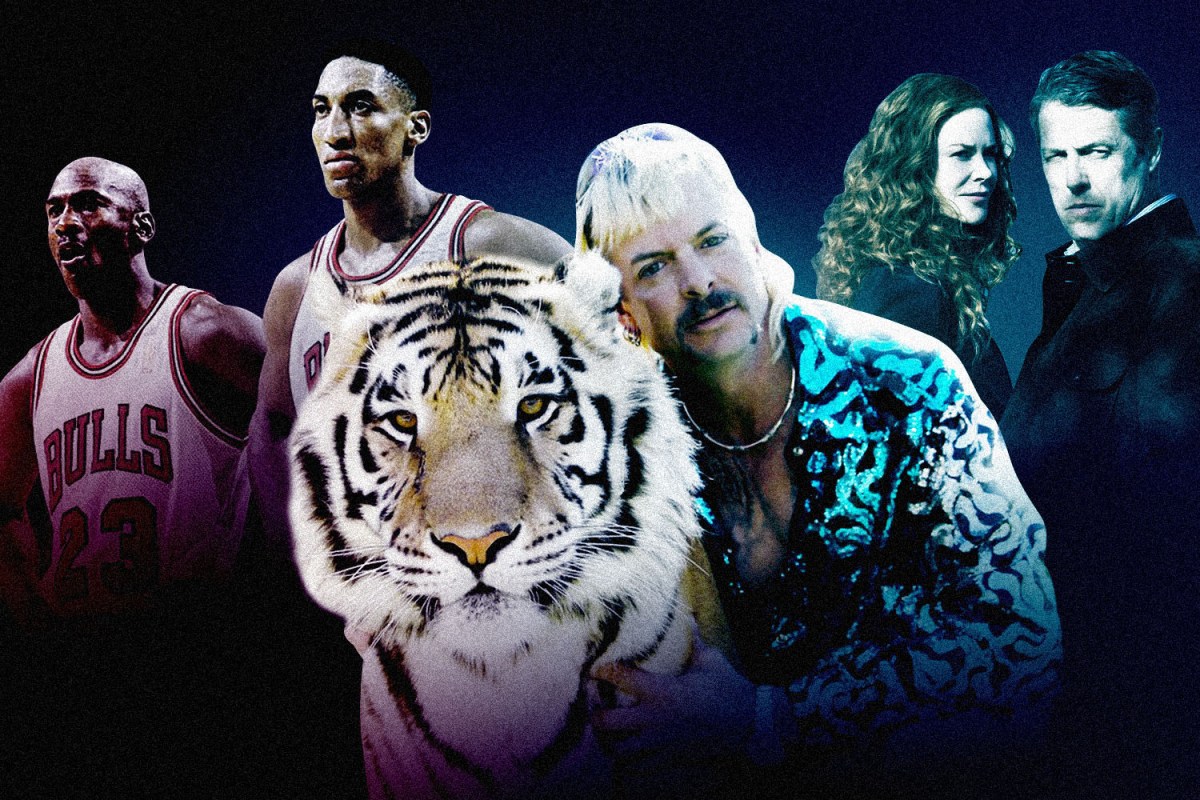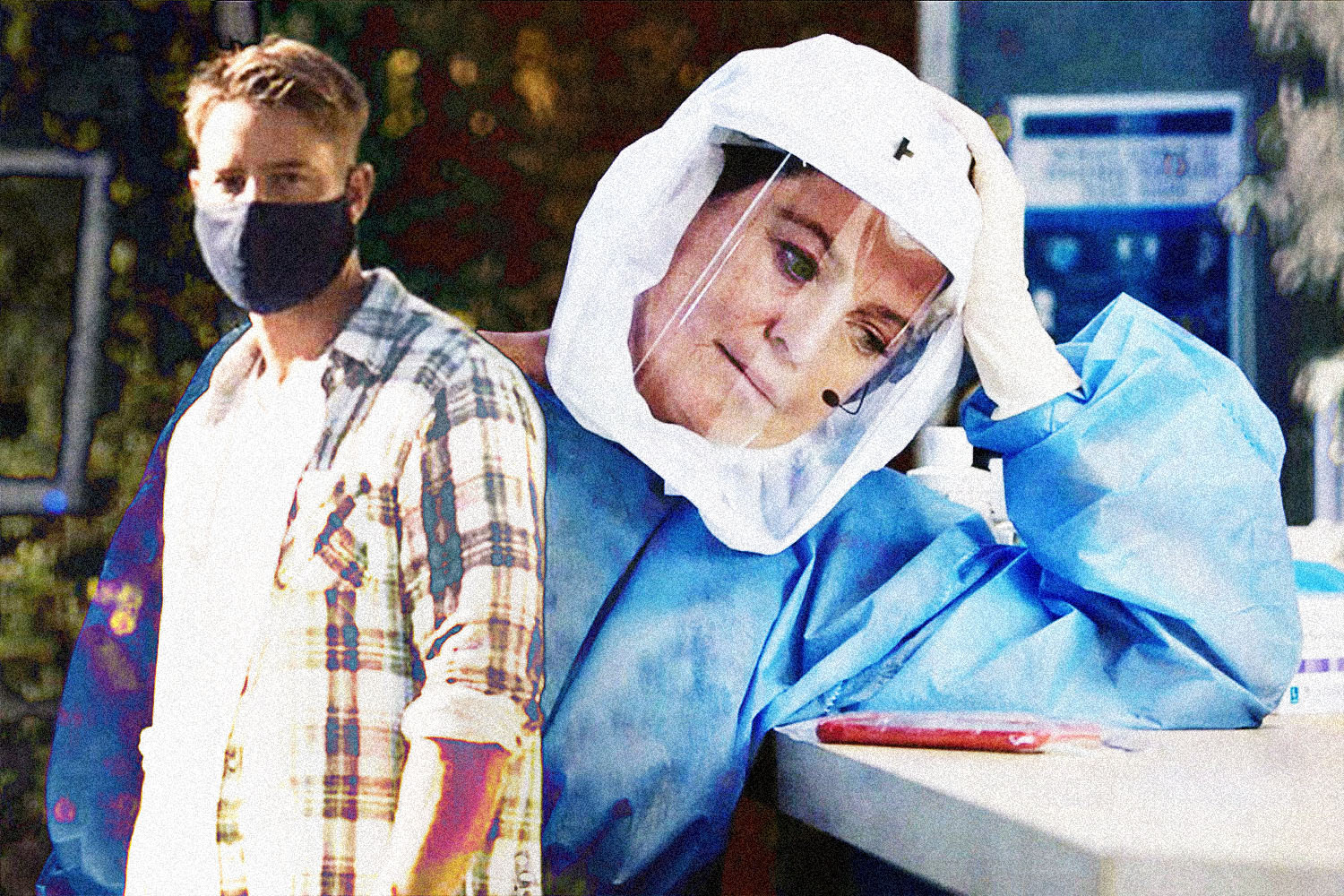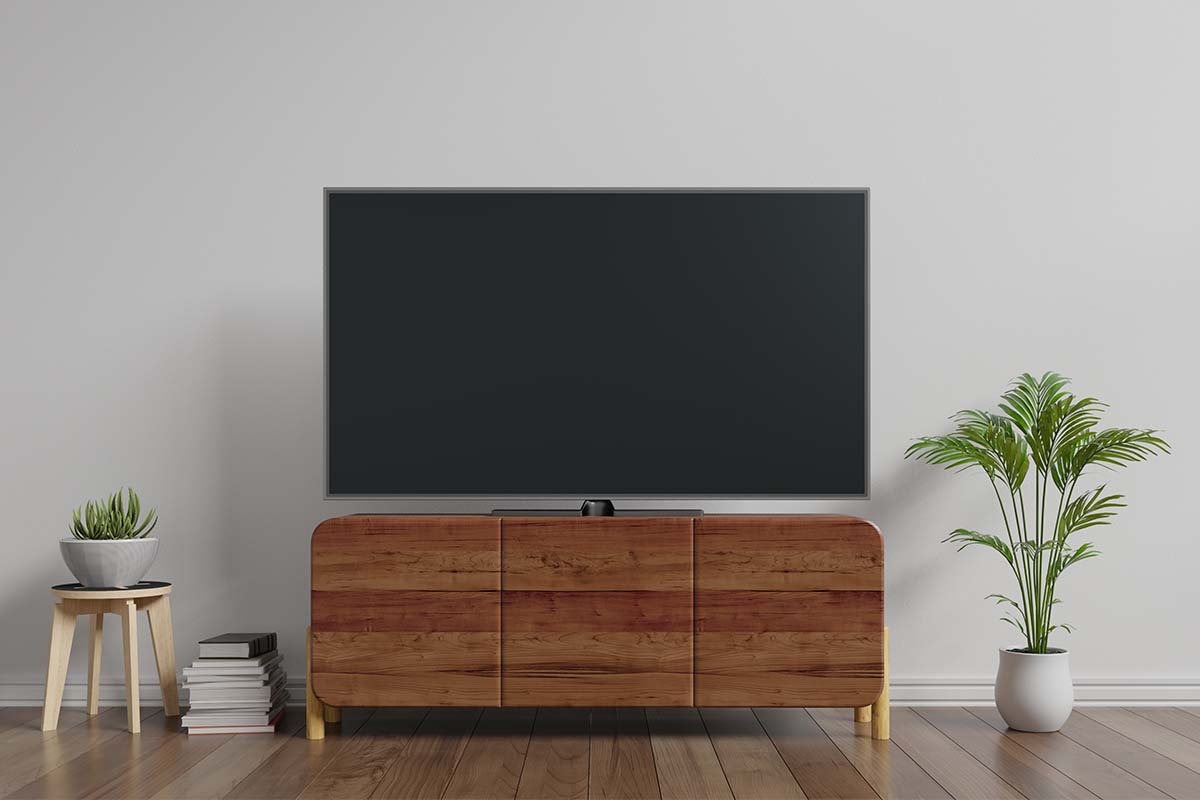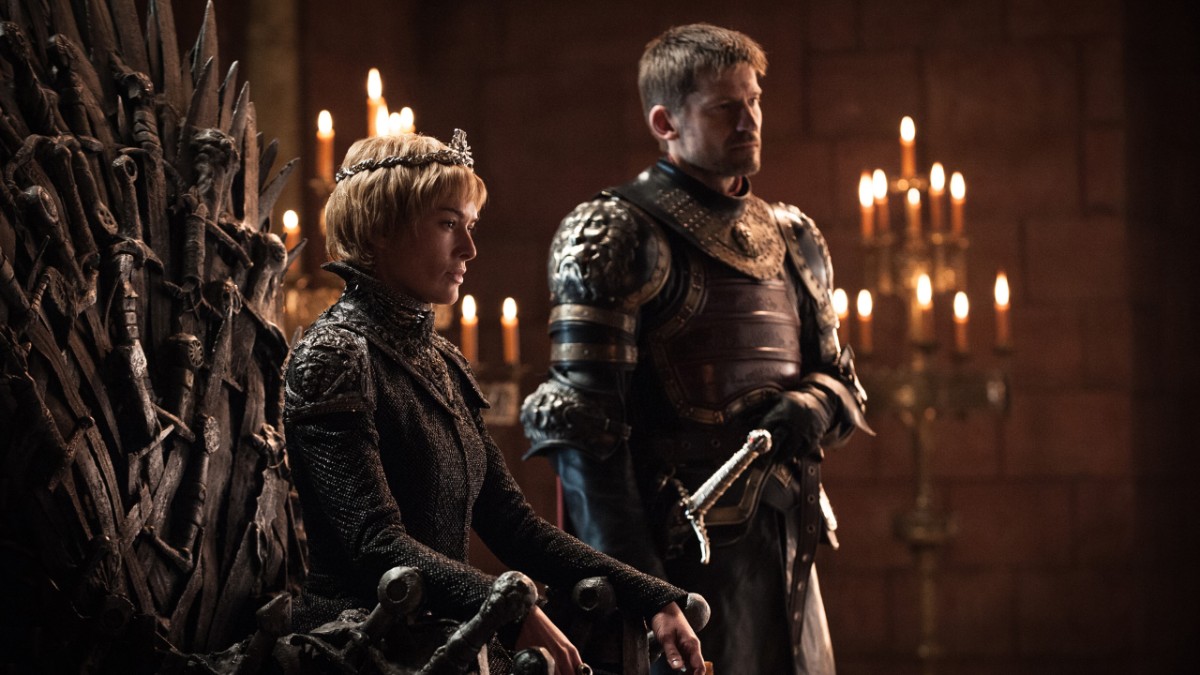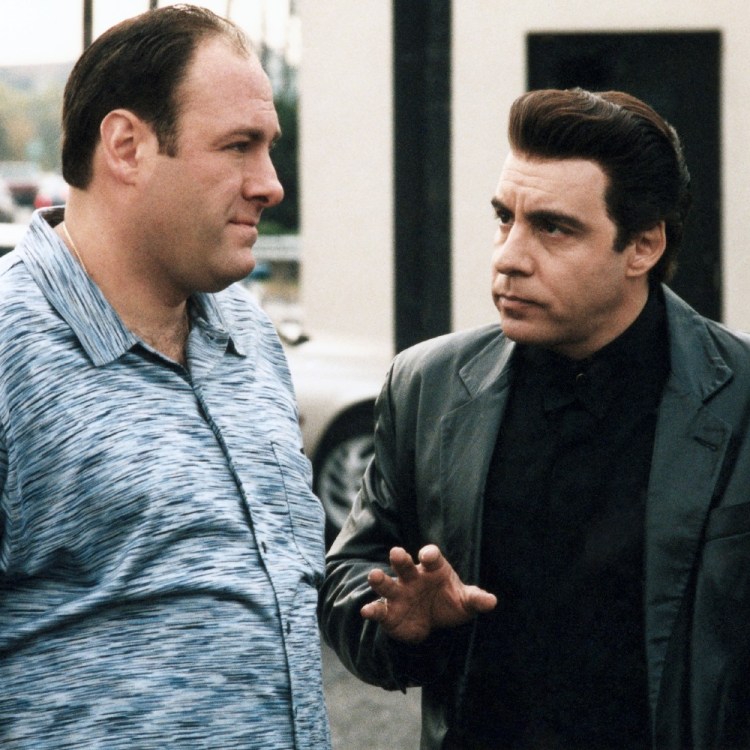This goes without saying, but I’ll say it anyway, just in case you dug up this article somewhere decades after the fact and weren’t around to experience it: 2020 was very bad.
For the majority of the year, the pandemic made us prisoners in our own homes, unable to go anywhere or do anything or see our friends and family face to face. TV has always provided comfort in trying times, offering an escape from reality and an opportunity to briefly shut off our brains and unwind, but in 2020, it wasn’t just a security blanket — it was a lifeline. It was a way to stay connected to the outside world, whether it was through news coverage of the virus or the telethons filmed entirely over Zoom or the endless shots of people in various cities across the nation banging pots and pans at 7 p.m. to show their gratitude to healthcare workers. As we all quickly developed cabin fever, turning on the TV for the latest updates felt a bit like receiving a transmission from some faraway rescue boat — we knew it’d be a long time before we’d get to actually leave this nightmare, but it was a sign of life, an assurance that the outside world was still there where we’d left it and one day, eventually, we’d return to it.
But TV didn’t just keep us connected to current events or remind us what day it was as they all started to bleed together. As we all found ourselves stuck in quarantine and struggling to figure out how to maintain friendships and relationships remotely (isn’t it wild to think that just 10 months ago, most of us had never heard of Zoom?), it helped us stay connected to each other. We all figured out pretty early on in the pandemic that answering truthfully when asked “How’s it going?” was a real bummer, and you can only respond “Literally nothing!” when asked “What’s new?” so many times before it goes without saying. (I have absolutely no new quarantine hobbies to speak of, but you’re damn right I texted at least six different people to excitedly inform them that one of the housewives on The Real Housewives of Salt Lake City is married to her former step-grandfather.) Instead, “What are you watching?” provides became the new ice-breaker, an excuse to talk about something besides our current hellscape, and in a world where the overabundance of streaming services has splintered our TV viewing habits, 2020 saw the unexpected return of the monoculture.
Writing for this publication in April 2019, Lincoln Michel predicted that Game of Thrones would be the “last bipartisan television show.” “The TV landscape is simply fragmenting,” he wrote. “There’s more and more, which means there is less and less overlap in what we all watch … The battle for the fate of Westeros will end this year, but Game of Thrones will live on in the culture. No other television show looks ready to claim the Iron Throne it leaves behind.”
At the time, that claim was credible — pre-pandemic watercooler moments were few and far between because we’d been gifted with far more content than we could ever need and the ability to watch it whenever we please. Whether or not you’re able to discuss a particular show with your buddy depends not only on whether he’s subscribed to the same streaming services you are, but how deep into the season he is and how he feels about spoilers. But as COVID-19 robbed us of the agency to do just about anything besides sit around, watch TV and dream of some form of human interaction, that all seemed to fall by the wayside. Just a few weeks into the pandemic, Netflix’s Tiger King became ubiquitous (and spawned an endless number of memes) thanks to word-of-mouth, and by early September, Joe Exotic’s big cat-loving nemesis Carole Baskin had nabbed herself a spot on Dancing with the Stars.
In April and May, we took it a step further, coming together the only way we could: by gathering on social media every Sunday night to live-tweet ESPN’s blockbuster docuseries The Last Dance. It felt like event television in a way few things have in the past few years, and every episode birthed a new reaction GIF before it was even done airing. (I am not exaggerating when I say that this footage of Michael Jordan laughing at Gary Payton is one of the best things to happen to me in 2020.) On Netflix, family crime saga Ozark — and its somehow pulpier little brother, Outer Banks — both drew huge shares of of audience, while HBO mysteries like The Undoing, The Outsider and The Flight Attendant found their way into the zeitgeist.
And, of course, election season kept us all glued to our TVs for other reasons. Even then, however, it felt like we were experiencing it together in real-time. Comedian Sarah Cooper began uploading videos of herself lip-syncing to audio clips of Trump speaking to social media in late April, and by October she had her own Netflix special. A fly landed on Mike Pence’s head during the vice presidential debate, and we all simultaneously lost our shit so hard that it had a Twitter account almost as soon as it flew away, and days later it was portrayed by Jim Carrey on Saturday Night Live. (Will we remember the Pence fly beyond this surreal year? Will it be immortalized like Nixon profusely sweating through his 1960 debate against the impossibly photogenic JFK?) The week or so we all spent glued to cable news awaiting the results was revealing for all the obvious sociopolitical reasons, but it also allowed us to find out in real-time which of our friends are sexually attracted to MSNBC’s Steve Kornacki. (A lot, it turns out!)
Eventually, as the vaccine gets rolled out, production schedules return to normal and things begin to go back to how they were before the pandemic, we’ll once again be oversaturated with content. Our viewing habits will become more fragmented, and — fingers crossed, at least — by this time next year we’ll all be too busy dining in restaurants and going to concerts and kissing strangers on the mouth to watch as much TV as we did this year. That’s as it should be, but it’s still kind of nice to look back on a year where almost everything was undeniably terrible and think about how something as simple as staring at a screen simultaneously helped make it a little more bearable by bringing us together, even when we weren’t.
This article appeared in an InsideHook newsletter. Sign up for free to get more on travel, wellness, style, drinking, and culture.
